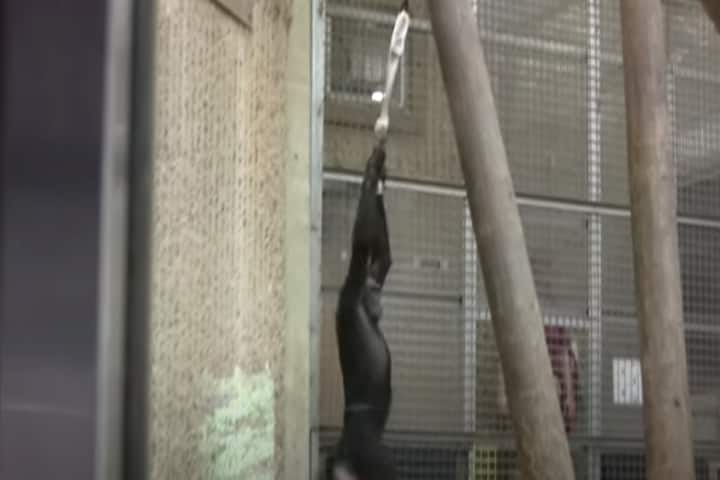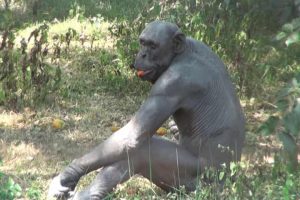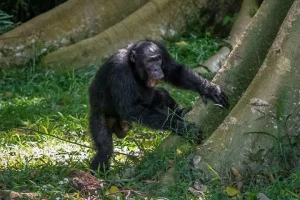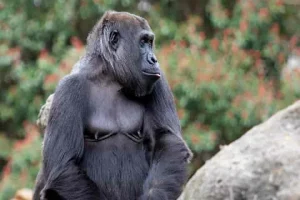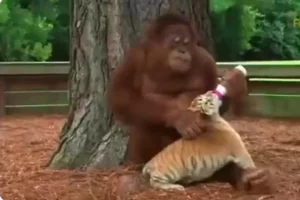If you thought humans, especially children, are fond of spinning, rolling down, going on roller coaster rides and swirling in swivel chairs, then think again.
As per an article in smithsonianmag.com, new research suggests that this habit of whirling is prevalent among the great apes. Details of this study which was published in Primates was done by Adriano Lameira, a psychologist at England’s University of Warwick and his colleague Marcus Perlman, who is a cognitive scientist at University of Birmingham.
Sharing details about this study, Lameira told BBC News: “Spinning alters our state of consciousness. It messes up with our body-mind responsiveness and coordination, which make us feel sick, lightheaded and even elated.”
He added that as apes relish spinning, it may be because it changes their mental state too.
For their research, the two scientists watched very closely 40 videos showing bonobos, chimpanzees, gorillas and orangutans in 132 instances of spinning on a rope. Analysing the footage, they drew data that these creatures spun an average of three bouts, each lasting about five and a half rotations. However, the orangutans did more revolutions than gorillas.
The average rotational velocity of the apes is 1.43 revolutions per second while the fastest one is 3.3 revolutions per second. Their speeds matched that of performers in circus, Sufis dervishes whirling, Ukrainian dancers who do folk dance called hopak and ballet dancers, all of whom clocked between two and three revolutions per second.
The apes during the swirling bouts became dizzy and even let go of the rope, falling on the ground. Primatologist Cat Hobaiter of Scotland’s University of St. Andrews observed that she had seen a lot of spinning while working with gorillas and wild chimpanzees.
She said: “It’s one of their favourite kinds of play when they’re young. The big leap is whether or not that is pleasurable… whether that’s something they seek out, whether they understand the connection between the two.”
Animals in an altered state is nothing new. Dogs have been documented becoming intoxicated after licking toads while mammals and birds have been found to be drunk after eating fermented fruits.
However, this new study will help in knowing why people have this desire to have altered states of mind.
Having gained knowledge about this particular behaviour on part of the primates the scientists are eager to do more research to understand it better. They want to know if this activity is more common in certain sexes or ages.
Perlman has already started in this direction by looking at more primate spinning videos while also scanning for proof of this type of behaviour among other creatures.
Summing up, Perlman said: “Spinning around to make ourselves dizzy is something we usually think of as a distinctly human activity. So, it’s really cool to find that other primates do this, too, and that they seem to do it for the same reason that children do: because it’s fun and exhilarating.”






